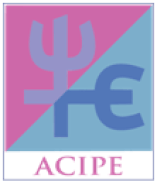
Rosario Cabello
University of Málaga, Spain
Adolescent emotional well-being, important factors for their protection and development.
Participants: Mª José Gutierrez-Cobo; Raquel Gómez-Leal; Mª Teresa Sánchez-López; Ana Costa; Desiree Llamas-Diaz
Introduction: According to the State of the World's Children Report 2021 (UNICEF), the well-being and mental health of adolescents is greatly affected by levels of anxiety and depression, these being the most common psychopathologies among European adolescents. These problems, which have a serious impact on the well-being of adolescents, are closely related to deficits at an emotional level, and it has been found that under this symptomatology are hidden problems related to the perception, understanding and management of one's own and other people's emotions. Through this symposium, we want to share our latest research related to emotions and adolescent well-being, trying to provide empirical evidence on some of the variables that influence this relationship. Method: The proposals include both data prior to the COVID-19 pandemic and data collected during the COVID-19 pandemic. Results: The results provided are related to adolescent well-being, analysing some of the variables that influence it, such as aggressiveness, positive and negative affectivity, implicit theories and pleasurable activities. Discussion: Through the different communications we will discuss the data obtained, and also the implications they may have at research and applied level, opening up future lines of research. In this sense, we will discuss (1) the importance of affectivity and the use of appropriate regulation strategies in the development of aggressive behaviour; (2) the differential impact of the different contextual variables associated with COVID-19 on the mental health of adolescents depending on the nature of the emotions they generate; (3) implicit theories as a variable involved in the development of emotional skills; (4) the impact of our findings on the design of emotional education programmes; and (5) the importance of developing measurement instruments that go beyond self-reports to assess emotional variables and emotional intelligence in order to conclude the importance of these variables on well-being and mental health in adolescence.
Professor of Developmental and Educational Psychology at the University of Malaga. She is a member of the Laboratory of Emotions at the UMA and of the International Society for Emotional Intelligence.
Her line of research is focused on the study and development of Emotional Intelligence programmes from childhood to adulthood, on the development of assessment instruments for emotional skills and on the analysis of gender and age differences in the evolution of Emotional Intelligence, aggressiveness and implicit theories. Researcher on numerous international, national and regional research projects of excellence. She is the author of scientific publications in national and international journals of high visibility and impact see: https://www.researchgate.net/profile/Rosario_Cabello.
Her published books include "Programa Intemo: Guía para mejorar la inteligencia emocional de los adolescentes" and "Programa Intemo+: Mejorar la inteligencia emocional de los adolescentes" both published by Pirámide. She teaches in different official and own Master's Degrees, and in numerous training courses in educational, health and business organisations to develop emotional and social skills.





